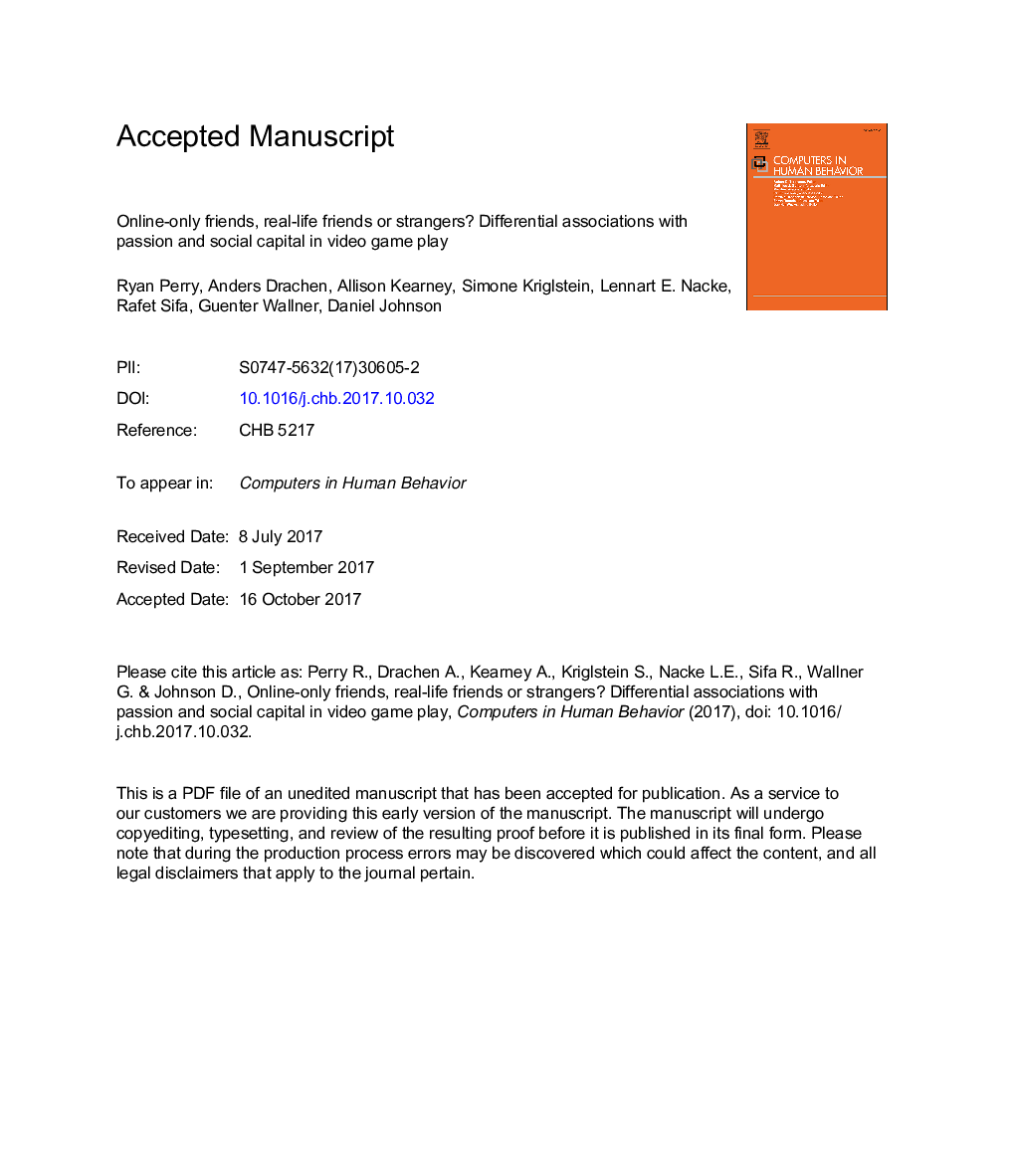| Article ID | Journal | Published Year | Pages | File Type |
|---|---|---|---|---|
| 6836353 | Computers in Human Behavior | 2018 | 38 Pages |
Abstract
The present study tests a recently proposed model in which social video game play supports wellbeing by contributing to a harmonious type of engagement with the game. Players (NÂ =Â 2030) of the online-only multiplayer first-person shooter game, Destiny, reported the frequency they played with real-life friends, online-only friends and strangers, their type of engagement with the game - measured as harmonious and obsessive passion, and completed a wellbeing measure of social capital. Telemetry data also recorded their total time playing over the duration of the study. A structural equation model supported the prediction that harmonious - but not obsessive - passion would mediate the positive association between playing with others and social capital. The findings also supported a supplementary hypothesis that the three types of social relationships would be differentially associated with two forms of social capital - bridging versus bonding - as a function of the closeness of social ties. Real-life friends was positively associated with bonding, strangers with bridging, and online-only friends with both. Overall, these results emphasise that social interactions in (and around) online multiplayer video games are effective for building social capital, and do so by ensuring game play is in harmony with other goals and values.
Related Topics
Physical Sciences and Engineering
Computer Science
Computer Science Applications
Authors
Ryan Perry, Anders Drachen, Allison Kearney, Simone Kriglstein, Lennart E. Nacke, Rafet Sifa, Guenter Wallner, Daniel Johnson,
